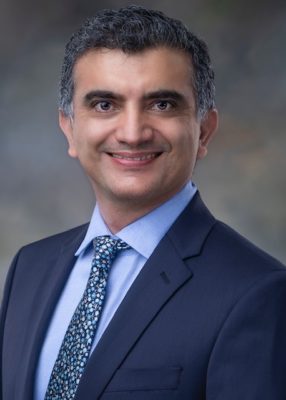CAST Accredited Neurocritical Care Fellowship
CAST certification in neurocritical care is through the Society of Neurological Surgeons (SNS). It offers neurosurgical residents extra training in neurocritical care. Those who complete the CAST fellowship will receive a certificate through SNS verifying their participation. This training does not allow trainees to sit for the neurocritical boards offered through the United Council for Neurologic Subspecialties (UCNS) but it is recognized in the neurosurgical community of having extra training in the field of neurocritical care. See requirements.
PGY 1-3 Residents: will have their schedules built to encompass the required rotations and they will automatically be enrolled in the fellowship.
PGY 4-6 Residents: all the above would need to be completed prior to graduation in order to obtain CAST certification.
Fellowship Structure
The fellowship is structured to provide 12 months of training in neurosurgical critical care. The rotations provide a program to encompass the knowledge and skills needed to provide comprehensive management of neurosurgical critical care patients
Required Rotations
- 6 Months NSICU
- 1 Month MICU
- 1 Month STICU
- 1 Month of vascular neurology
- 2 Weeks neuroanesthesia
- 2 Weeks EEG
- 2 Months research/elective
Critical Care Texts
- Critical Care Medicine: Principles of Diagnosis and Management in the Adult, Parillo
- The Ventilator Book, William Owens
Conferences and Didactic Sessions
- Weekly multidisciplinary critical care conference (Tuesday)
- Weekly neurocritical care didactic with a once-monthly fellow presentation
- Weekly neuroscience Grand Rounds
- Monthly neurocritical care case conference
- Present at the neurosurgery Friday lecture series on neurocritical care
Scholarly Activities
Fellows would be required to design and produce (with help from the critical care faculty), a neurocritical care specific quality improvement project.
Rotation Details
6 Months of Neuroscience ICU (NSICU)
This rotation will expose the fellow to a wide variety of neurocritical care patients including post-operative neurosurgical patients, traumatic brain injury, stroke, neuromuscular disorders and spine injuries.
Fellows will learn how to approach patients in a multi-system fashion and how the systems are integrated and affect one another. Fellows will gain experience not only in the specific nuances of the neurocritical care patient but will also learn how to manage multi-system critical care issues. Fellows will have the opportunity to perform procedures including central line and arterial line placement, endotracheal and nasoenteric intubation, bronchoscopy, and chest tube placement.
The fellow will initially start in the senior resident role and as learning progresses, will advance to a supervisory role, in charge of leading rounds and supervising junior residents and students. Fellows will be responsible for teaching junior residents as well as off service residents and students about neurosurgical disease and injury, operative procedures and interventions and interpretation of imaging. Fellows will be required to take call in the ICU, which will help build confidence and competence in caring for critically ill patients. Call requirements to be compliant with ACGME duty hours.
1 Month of Surgical-Trauma ICU (STICU)
This rotation will expose the fellow to a broad range of surgical patients in addition to neurosurgical patients with multi-system trauma. Fellows will be an integral part of the ICU team, learning to assess multi-trauma critically ill patients and developing plans of care. There will be multiple opportunities for procedures including central line placement, bronchoscopy, arterial line and chest tube placement. Fellows will impart their knowledge of neurosurgical conditions and interventions to the STICU team as education during rounds or as formal presentations as requested by STICU faculty. Call responsibility will be at the discretion of the rotation directors and compliant with ACGME duty hours.
2 Weeks of Neuroanesthesia
This rotation will allow the fellow to learn the details of medications and procedures used in the operating room for neurosurgical cases and how they affect cerebral blood flow, cerebral perfusion pressure and intracranial pressure. Fellows will also have the opportunity for endotracheal intubation and central/arterial line placement. This rotation would be Monday-Friday daytime hours.
2 Weeks of EEG
This rotation will give the fellow a general introduction to EEG. Fellows will work with an epileptologist to become familiar with EEG waveforms, patterns, and montages. These skills will be reinforced during the NSICU rotation for evaluating patterns such as generalized slowing, focal slowing, PLEDs and electrographic seizures and interpretation within a clinical context. This rotation would be Monday-Friday, daytime hours.
Additional Requirements
FCCS (fundamental critical care support): to be completed during training.
Education
For more information
Ali Seifi, MD, FACP, FNCS, FCCM
Associate Professor
Neurosurgery, Neurology, Anesthesiology, Medicine
Medical Director, Neuro Critical Care
Phone: 210-567-5625
Email: Seifi@uthscsa.edu
